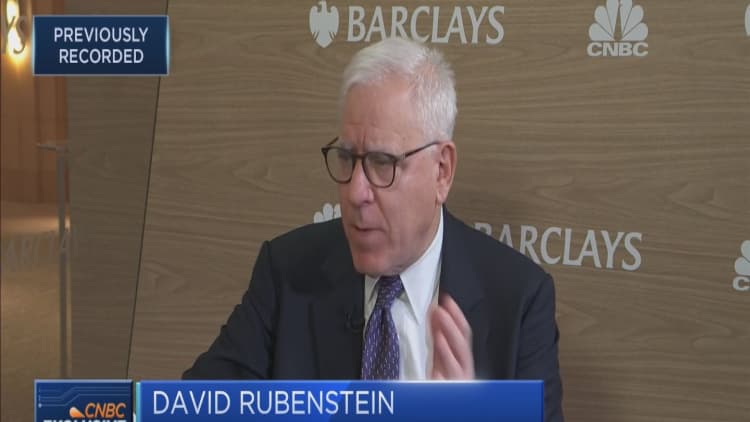
The U.S. and China will eventually be able to come to a trade deal, according to private equity billionaire David Rubenstein.
"My view is this trade dispute will be more of a skirmish, not a war," Rubenstein told CNBC on Tuesday at the Barclays Asia Forum in Singapore.
"I think there will be a resolution not unlike what happened in NAFTA. There was a back-and-forth, but ultimately a resolution occurred," said Rubenstein, who is also co-founder and co-executive chairman of The Carlyle Group.
So far, companies that The Carlyle Group owns that do business in both countries have not been dramatically impacted, he said.
In fact, the tit-for-tat tariffs are "relatively modest" compared to the sizes of the U.S. and Chinese economies on their own, he added.
"I think it's a bit of a mistake to worry too much that we won't be able to come together with China. I think the United States administration wants to reach a deal and the Chinese want to reach a deal," he said.
"Obviously, what is said in public might not be what is really said in private, so I'm confident at some point this will come together," said Rubenstein.
After all, if the Chinese economy slows, it'll not just affect the global economy, "China will have less money to buy U.S. Treasury bills, I'm not sure if that's a great thing," he said.
But, Rubenstein noted, the Chinese economy is actually "in pretty good shape" — despite predictions over the years that it would one day fall on its face.
"They might have some more debt in certain sectors than they prefer, but, generally, China has enough foreign reserves to deal with their problems," he said.

